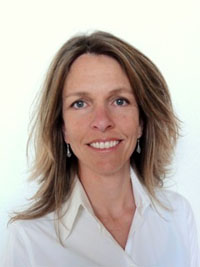Think tank says movement needs more money and focus

Ineke Mushovic
The LGBT movement is making progress, but it’s being seriously outspent by opponents and still has “a long way” to go to reach equality. That’s the conclusion of an in-depth analysis by an independent think tank devoted to studying how best to marshal the LGBT movement’s resources to “speed advancement of equality for LGBT people.”
And it’s a hard-edged conclusion in a year which has seen many dramatic gains for the movement—repeal of Don’t Ask, Don’t Tell, significant federal court rulings against the Defense of Marriage Act, and a swing in public opinion toward support for same-sex marriage.
But the report, prepared by the five-year-old Movement Advancement Project (MAP), is clearly aimed—not at just patting the LGBT movement on the back but—at helping direct the community’s attention to where work can and must be done to move the movement along. The report notes, for example, that only 3.4 percent of LGBT people made a contribution to a national LGBT group in 2009 against a backdrop in which anti-LGBT groups have more than three times the revenue of pro-LGBT groups.
It also notes that:
- HIV infection is still a “growing” concern among men having sex with men. While 59 percent of new HIV infections among men in 2000 were attributed to male-to-male sexual contact, 75 percent were in 2009;
- 24 percent of lesbians are living in poverty, compared to 19 percent of straight women; 15 percent of gay men live in poverty, compared to 13 percent of straight men;
- the median household income of a same-sex couple with children is 23 percent less than that of a straight couple with children; and,
- 53 percent of LGBT people live in states where there is no legal recognition of their relationships.
Much of the information presented in the report was reviewed in March at a closed-to-the-press conference of wealthy LGBT donors, organized by the OutGiving Conference. The invitation-only conference is hosted annually by gay philanthropist Tim Gill’s foundation. Gill Foundation President Tim Sweeney, a long-time respected activist and former head of Lambda Legal Defense, sits on the MAP board. Other MAP board members include representatives from the foundations of other gay philanthropists, including the David Bohnett Foundation and Jon Stryker’s Arcus Foundation.
The presentation to the conference, provided by MAP Executive Director Ineke Mushovic and Williams Institute Executive Director Brad Sears, was more blunt than the report. They noted that the 2010 election results giving Republicans control of the House and many state legislatures limited “opportunities” for LGBT gains in the “short-term.” They said the movement “may be hitting a wall in some areas,” noting that, in 28 states, there has been “little progress” toward passing non-discrimination laws.
“While things are improving on the coasts and in the upper middle west,” said Sears to the OutGiving Conference, “they’re not improving equally across the country, and we need to focus on these states where things are lagging behind.” Those states include Texas, Florida, Georgia, Pennsylvania, Ohio, Michigan, and Arizona.
The presentation also noted that while 550 LGBT non-profit groups collected a total of $574 million in contributions during 2009, most of that money ($299 million or 52 percent) went to providing health services and community center programs. About $192 million (33 percent) was spent on advocacy, and about $35 million (6 percent) on legal challenges. Arts and recreation accounted for about $36 million (6 percent). Only $13 million (2 percent) is spent on public education. And, as reported in a study released by MAP earlier this year, revenue to LGBT groups dropped by 20 percent between 2008 and 2009.
But both the written report and the OutGiving presentation included a long list of advancements by the movement, including increasing public support and increasing bipartisan support of civil rights for LGBT people. The reports note that the LGBT movement has gotten better at working with its allies to accomplish its goals. The number of states with “safe school laws” addressing the issue of bullying of LGBT youth has gone from zero in 2001 to 14 today.
“Much work remains to be done,” concludes the report, “but strong and growing public and political support, along with a growing list of legislative successes, shows that momentum is on the side of progress.”


Leave a Reply